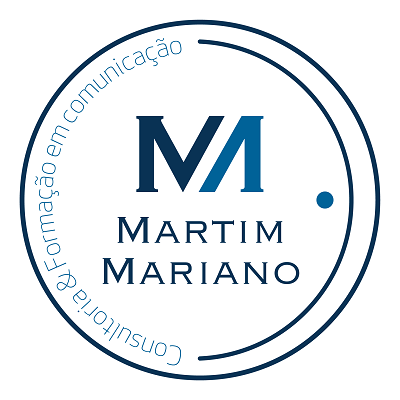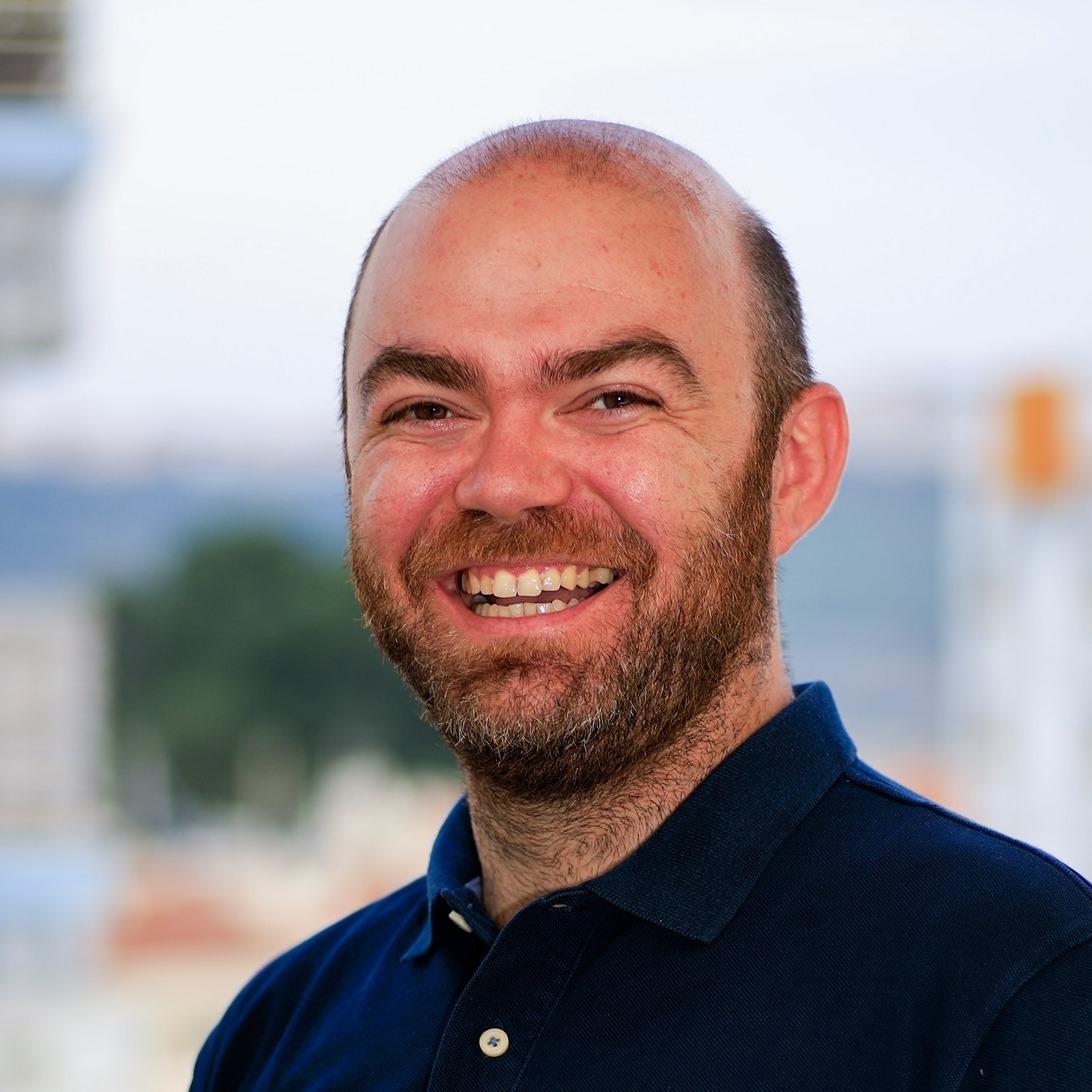
Martim Mariano
Copywriter and Communication ConsultantStoryteller and content creator, Martim Mariano currently works as a copywriter and communication consultant on his own, but he was also Senior Community Manager at BBDO Portugal, Business Director at CLICKSUMMIT and journalist at SIC/SIC Notícias.
Graduated in Childhood Education and with a Master's degree in Journalism, Martim Mariano has a clear purpose: “to help the country and the world to communicate better”.
Believing that “the nearer future will essentially involve improving and making communication more humane and sincere”, Martim Mariano is one of the special guests at PARTTEAM & OEMKIOSKS Connecting Stories.
1. You are a communication consultant, copywriter, communicator, writer of things, storyteller, content creator, blogger and have been a journalist at SIC for almost 10 years. Can you tell us a little more about your journey and your professional experience?
Uiiii… we stayed here all day. It is, above all, a path rich in experiences. On adventures. In wrong decisions and choices that led me to the right path or, at least, I want to believe.
I have always liked stories, books, worlds other than mine that my world crossed.
I graduated in Childhood Education (the only man in the class). I realized over those five years that my path would always be to challenge the odds and conventions. So I decided to go for a master's degree in Journalism. That was how the doors of SIC were opened. What was supposed to be a six-month internship turned into an eight and a half year marriage. And it was at SIC that I met my wife. It was at SIC that I became a father – the event that forever marks my existence on this planet. It was at SIC that I found out I had cancer. It was at SIC that I beat him. It was an incredible path. With many ups and downs. With many defeats. With much frustration and revolt. But above all, with a lot of learning and a lot of growth.
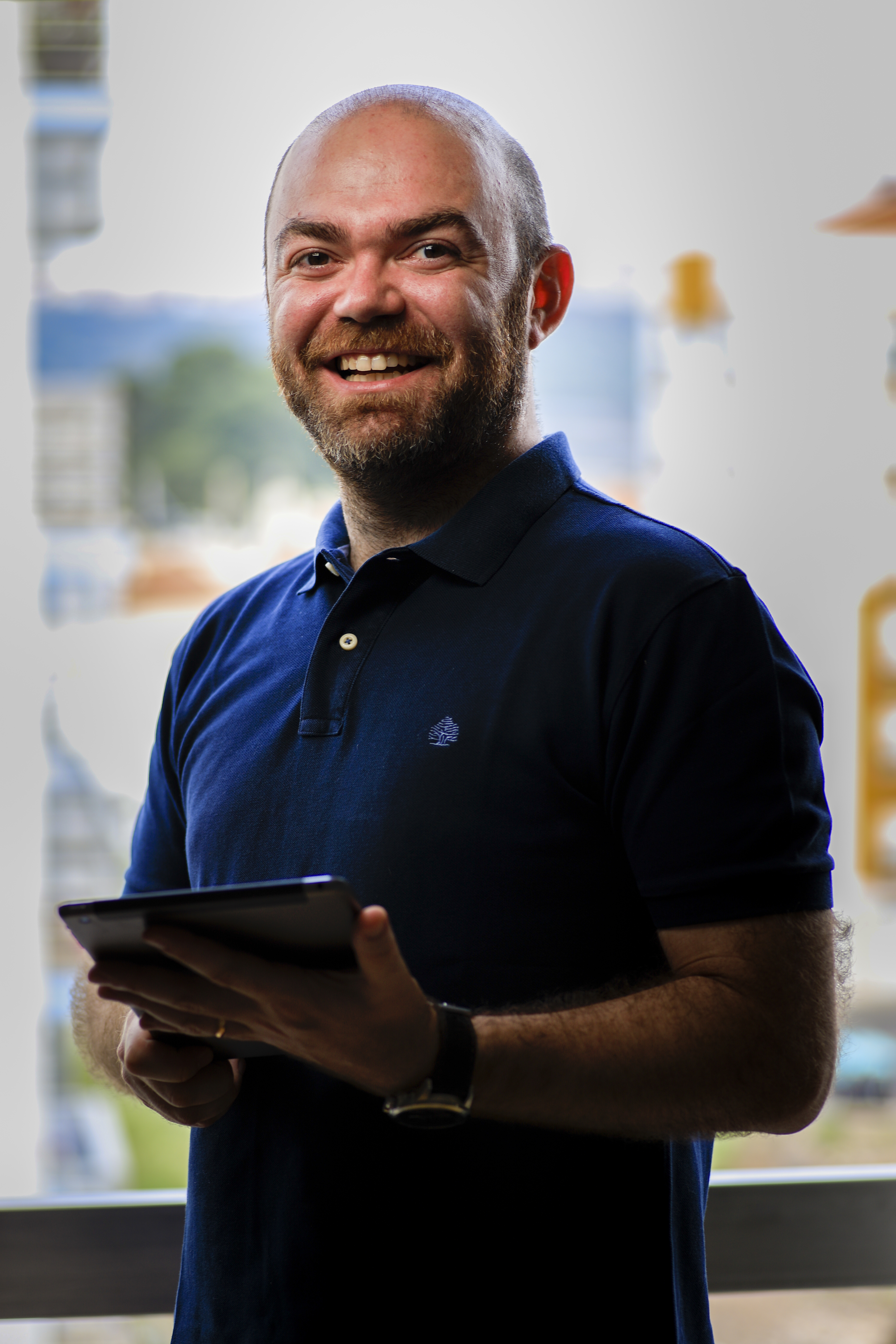
Today I am a very different and much more complete professional. I've done everything: I worked in a supermarket, at the oceanarium, at Lisbon Airport, I was a children's entertainer on summer camps, I was arrested in Holland ... It's, as I said at the beginning, a path rich in experiences that brought me here.
2. What changes did you feel when you left Journalism and dedicated yourself to Marketing? Was it a difficult process?
I started to approach Marketing in 2014. It took me four years to learn. Reading. A lot. I have that advantage over most people I know. I read a lot. I read with pleasure. I read with passion. I read with a desire to learn. And that allowed me to get to know the right people and practices more and more. Then I started making my approach. I started to be present at events. ClickSummit was the first event (for which I would come to work some time later), then I was working for two years in the digital operation of SIC/SIC Notícias on WebSummit. In the middle I met hundreds and hundreds of people and the bug of marketing, advertising, copywriting, achieving results with words started to awaken.
They are two distinct worlds, but with common things. As a journalist you have to be strict. You have to investigate. You have to drill. You have to dig and look for what's not in sight. You have to choose an angle and approach the stories through what your eyes can see – and not only that. And you have, above all else, to listen and understand people. Understand what they want to read and how they like to do it. In Marketing it's the same thing. You need to understand people. Listen to them. Understand quickly that nobody cares about you for anything.
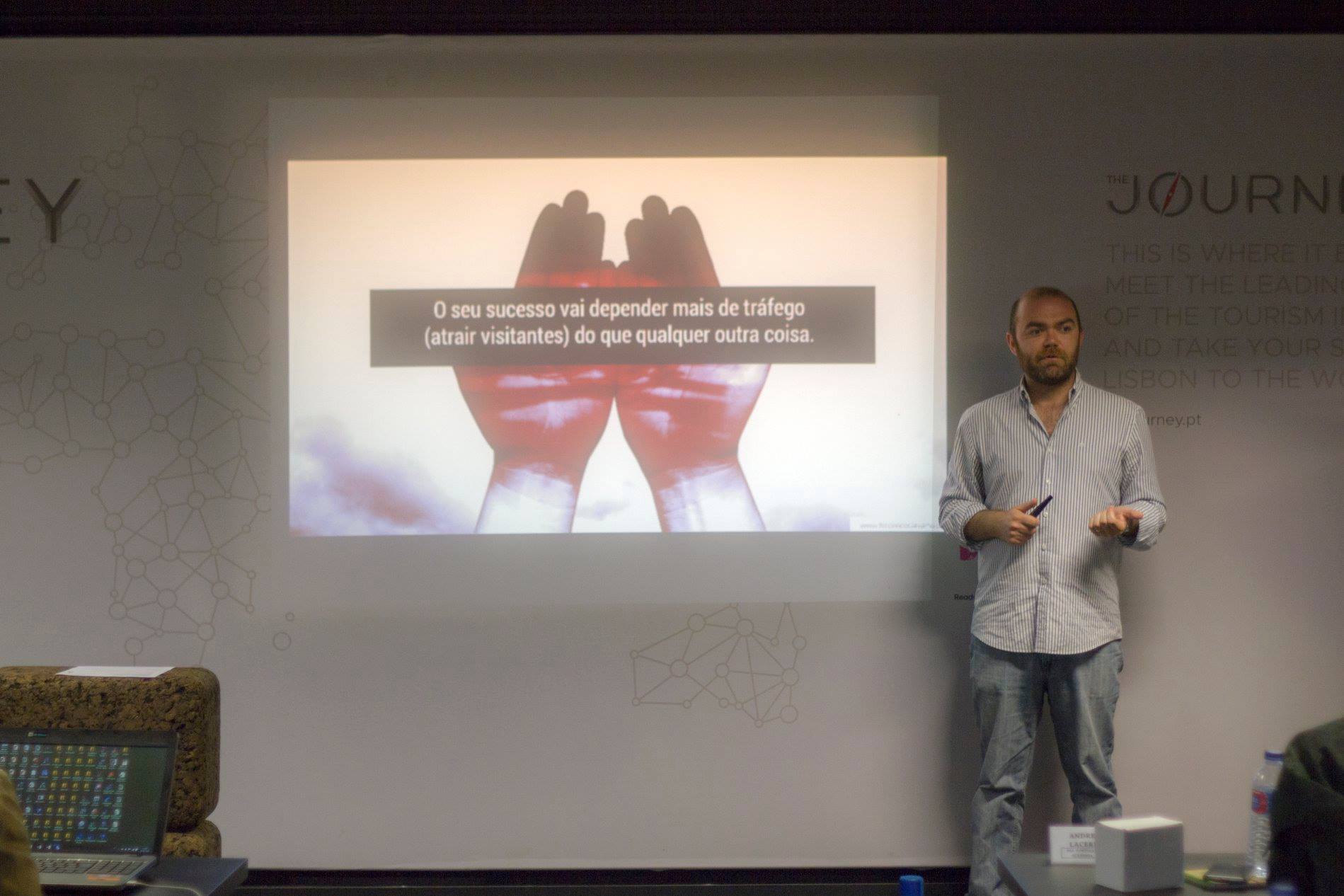
As Dale Carnegie said, people only care about themselves. So you have to talk in their ear. To tell them things that are interesting, even if it has no interest to you. It's the people who matter. The contents have to be created for them. Not for us.
My departure from journalism was considered, thoughtful, desired. But of course there is always a process of adaptation. To strange the new world you enter. Especially when, as was my case, you go from a giant company like SIC to a company with six people, like DIGITALFC, by Frederico Carvalho. But with good will everything is done.
3. In what areas do you feel more comfortable? Are they the same for which you are most requested?
I like to work on everything that is communication. But writing is my world. I have a friend who a few months ago told me something I had never thought about: “Martim, you are not afraid of any text. You write about anything and everything ”. It's a big truth. I've written about cryptocurrencies, about envelopes, about economics, sports, taxes, love, parenting, death, health, politics. For me it's writing. And writing is having the ability to do it about whatever you need to write.
Copywriting has turned out to be a natural extension of this ability to observe the world and things and make communication more effective. How? By telling the stories people want to hear.
4. What led you to the area of Communication? What is your big goal?
The love for communication. The love for all that is life. This incredible gift that those who live receive at birth. I always liked to communicate. To talk. And when I have no one to talk to, I talk to myself. True. It's always been like that.
My goal is simple: I want to help the country and the world communicate better. Why is that? Because I firmly believe that a large percentage of problems in our lives are caused by communication failures or deficiencies. My family (and most families on Earth are too) a perfect example of this.
I grew up aware of these problems and constantly bumped into the metaphysical impossibility of solving them. So I thought I had to go to the base and try to help other people to communicate better so that in the future the percentage could decrease.
5. You were a speaker at the Social Media Hackathon, an event about Social Media and Digital Marketing. As a speaker at this event, and since you provide training in this area, what are the key aspects in building bonds with the audience, in order to contribute to interpersonal relationships and to promote joint enrichment?
It's absolutely fundamental to know who the public is in front of you, sitting at half light, waiting for something to make you feel that the bet, the investment you've made in the ticket, the time you're wasting there, the day off wasted, the late hour you're going to get home... all of this is going to be worth it.
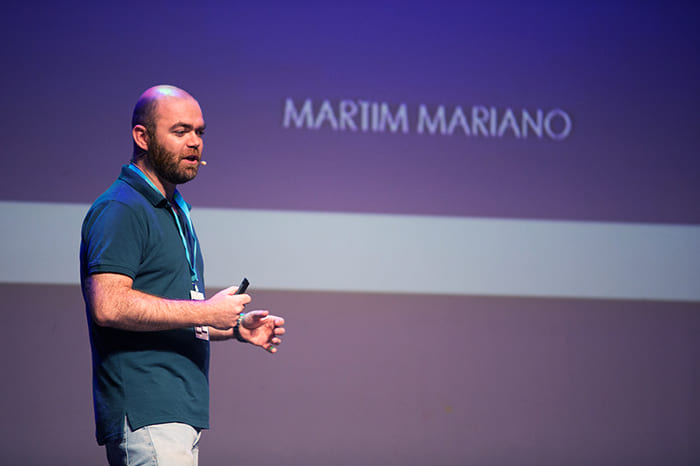
So it is very important that we think that a PowerPoint does not save – not today, not ever, here or in Australia – a bad speaker. Someone who can't communicate. All this is trained, of course. But a PowerPoint only exposes our weaknesses, it doesn't mask them.
So, one thing that I consider very important is to make that time on stage a moment of leisure. If we make those 15 or 20 minutes a moment when people hear one or more stories, told in the first person, where we pass on the message we want to pass on through sharing our own examples, our mistakes and the learning and transformation that occurred along the way, then it is guaranteed that people will remember you at the end of the day.
There are companies, such as Amazon, where PowerPoint was scratched from presentations and meetings. If you want to convince someone of something, if you want to teach someone something in a short period of time, then tell them a story. It sounds ridiculous, but it's an indestructible weapon.
6. As an entrepreneur, what challenges have you found along the way?
Perhaps the biggest challenge is the way we have to look at ourselves. For who we are. For everything we do. For the future. For the present. To discover that every mistake we make directly involves us in every part of the failed process.
In my case, being working completely alone and in a market involving face-to-face training and travel around the country, the pandemic quickly showed me that I urgently needed to do something not to get in trouble. I froze. I was petrified of stupefaction and fear. But with the precious help of my wife, I made a decision. I have to start doing workshops and online training. There was no turning back. And that's what I did. But, there it is, I had doubts. I was afraid that nothing would happen. I was treading new ground, fresh. I'd never been there before. And, as in any good story, I hesitated and refused the call to adventure that the moment and life were making me. But I decided to go ahead and, six months later, I already had almost 200 people participating in the seven workshops I did since the coronavirus appeared to show us who's in charge.
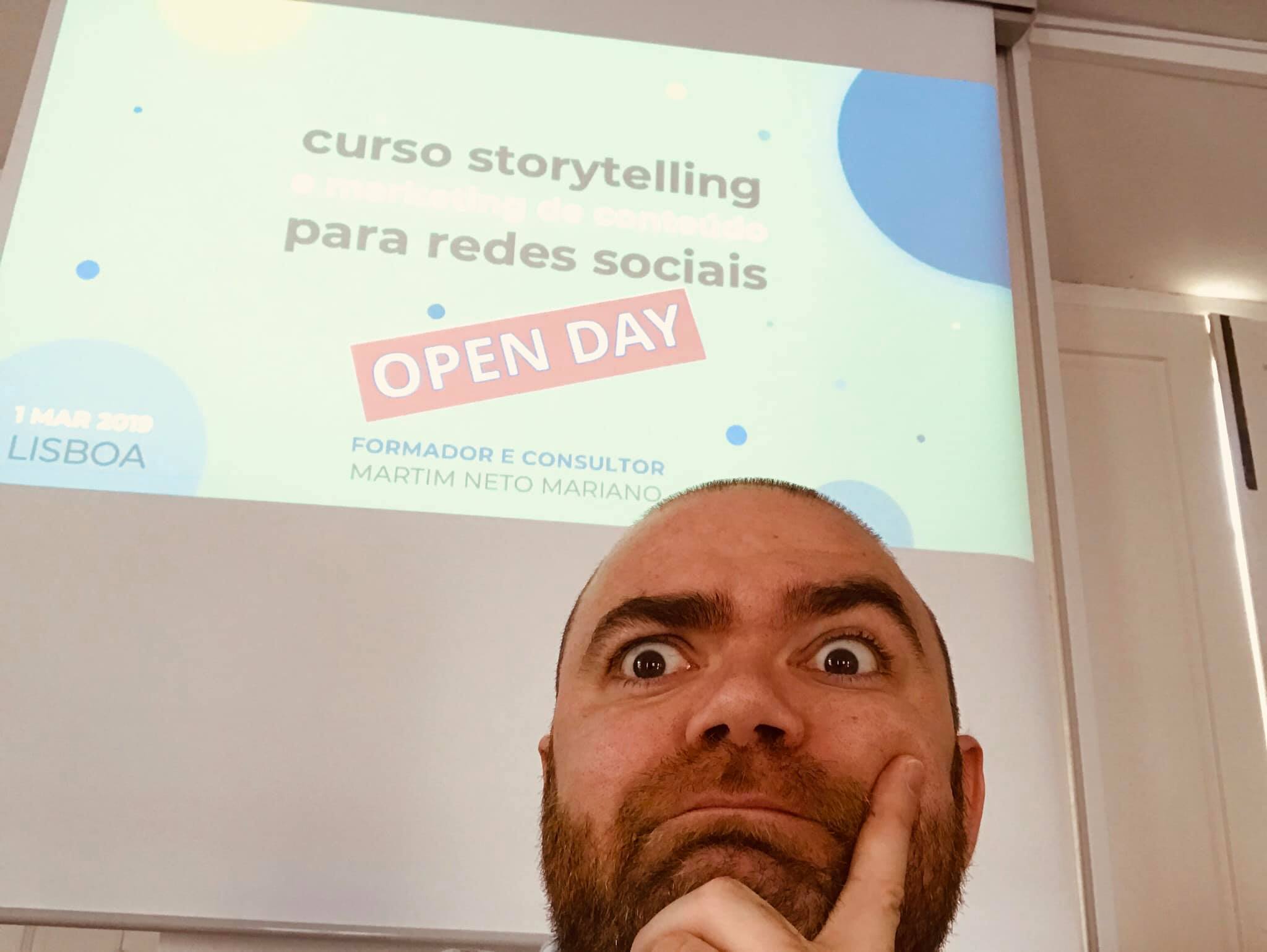
And this tells me that people are interested in learning how to communicate better. And that doing it online doesn't demotivate them. It doesn't take them away from their goal. Knowing this and understanding this makes me feel a huge responsibility and I felt that I couldn't, in any way, turn my back on opportunity and people. Then, being alone doing everything from preparing the courses, their promotional materials, the certificates, the management of payments, invoices and receipts, marketing, communication in your own name, the search and curation of content that may be of interest to your audience, thinking about what you will do and what you will say. The ads. The contents. Doing all this on your own is hard. Let no one delude themselves. I've never worked so hard in my life. But seeing the results and learning from the mistakes is an incredible experience. And then it's this possibility to manage my path, my days, that makes me very happy at the end of the day.
To take and pick up my daughter from school every day is an invaluable privilege. It is pure gold. And only in this record of entrepreneurship – if that's what we want to call it – you can do this. At least until now. I'm hopeful that this new advent of remote work will allow parents to spend more quality time with their children.
7. How can Communication determine the success of a company and/or a brand?
I return to Dale Carnegie. "People don't care about us for anything. People want to know about themselves." We have to give them things that interest them, things that can take them away from their lives, from their thoughts, from their problems, from their pain. Then we convince them to stay with us because we have something they will want to see.
To communicate is to establish contact. It is to open a way to say something with some intention and wait for an answer from the other side. A brand or a company, if we want, that knows how to communicate with its people in this way, that shows that it cares about them, that convinces them that they are there for what it takes, that it becomes part of their life and that solves some kind of problem is a brand that becomes part of the family. And this is a tremendous achievement for a brand or company.
There are marks that do this in a masterly way. We have Coca-Cola, Nike, Apple, Adidas, Starbucks, car brands, chocolates. Brands that have an impact on people's lives and use this power of influence to communicate in an empathetic and engaging way have the world at their feet. Or a big part of it.
8. What is the future of Communication? Is it a growing area?
I don't know what the future of Communication is. If I did I would be rich. But I think it will always depend on people and their ability to adapt to the new things and the time in which they live.
I am 36 years old. I'm married. Father of a four-year-old girl. I'm not finished. But I see so many different forms of communication every day that I can only hope it will be a growing area. Even because I need to pay the rent. So it's good that it grows.
I believe that the need that people and companies and entrepreneurs feel to communicate with the public is increasing. This pandemic and the isolation we have been forced into have made it clear that we need to communicate more with each other. Whatever method we use to do it. We have at our disposal an absurd tool that goes by the name of Internet and that allows us to have the world in the pocket of our pants or in the palm of our hand, if we want a more beautiful image. Nowadays, anyone with a smartphone in their hands can talk to the world. Publish and be read. Listen. Admired. Hated. You can do anything.
Many of the portuguese companies were neither near nor far prepared not to operate without face-to-face contact with customers. To get an idea, more than half of portuguese companies do not have a website. And when they suddenly prevent us from opening our doors and force us to work stuck inside, what happens? The worst.
Thus, it seems to me that communication and the need to have someone to give voice to the company, in real time, to help customers and solve problems to those people, will have an increase in demand and investment by companies. Even at the expense of their own sweat until they realize that they need help from someone who knows what to do.
Connecting Stories is a new editorial space led by PARTTEAM & OEMKIOSKS which consists of conducting exclusive interviews, directed at influential personalities who work in different sectors of activity.
The project, conceived by PARTTEAM & OEMKIOSKS, includes the publication of success stories, through small interviews with influencers who want to share details about their projects, opinions, plans for the future, among other subjects.
The idea is to connect stories, share knowledge, develop networking and generate content that can provide new visions, opportunities and ideas.
Founded in 2000, PARTTEAM & OEMKIOSKS is a world renowned Portuguese IT company, manufacturer of indoor and outdoor multimedia kiosks, self-service equipment, digital billboards, interactive tables and other digital solutions, for all types of sectors and industries. To know more about our story, click here.
